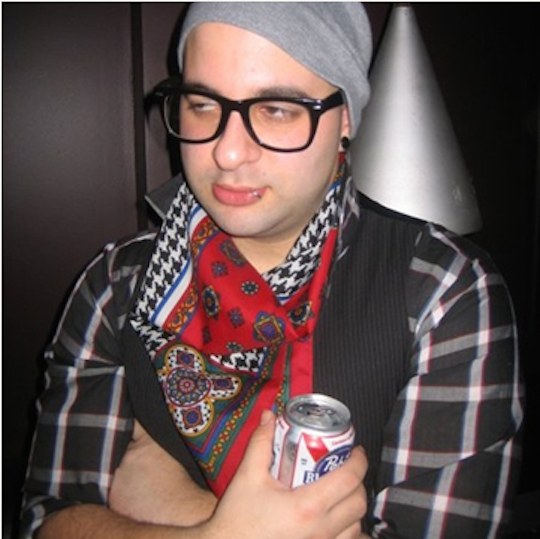Work: We all have to do it, except for rich people, who don’t. Even those people do a kind of work, though, by stewarding their family fortunes and encouraging the rest of us to cultivate strong work ethics. Sarah Palin participated in that second kind of work today, when she shared this story from usa.sarahpalinnews.com. I wish there were a news site that had my name and the name of my country right in the URL, but that’s beside the point. The point, in the words of USA Sarah Palin News, is INCREDIBLE! You’ve Got to See This 91 Year-Old’s Attitude About Working, It’s Perfect.
Elena Griffing is a patient relations coordinator at the Sutter Health Alta Bates Summit Medical Center in Berkeley. At age 91, she’s been working there 71 years—ever since she came in with a hemoglobin disorder at 19 and stayed four months, until a lab technician told her to “get to work.” She took a job as a secretary and has been at SHAB Summit ever since. In all that time, she’s only taken four sick days. It’s an inspiring story, especially if you are a human brand who went from local newscasting to executive government to vaguely monetized celebrity. If you are a person who has been working in medical billing for 40 years, on the other hand, it’s a glimpse of a nightmare from which you might never awake.
USA Sarah Palin News describes only taking four sick days in 71 years as the “perfect” attitude toward work. Perfect for whom? If you run a hospital, that’s exactly what you want from your workers. But if you work in the hospital, one day off for illness every 18 years does not describe your ideal working life. Yet the Yahoo piece from which this article was aggregated frames the relationship between Griffing and her employer in terms of ethical obligations on her side and her side only. Here’s the lede for their recurring feature, called Lifers:
In current culture, millennials move from job to job in order to climb the ladder. The average time spent at a company is just two years. For baby boomers and other generations, this was not the norm. Loyalty and dedication to a single company or career drove, and still drives, many of their careers.
Damn you, current culture! Another way to look at the statistical differences in employment length between millennials and baby boomers is in terms of what employers are offering. Compared to older generations, millennials are much less likely to find jobs that offer benefits or even a living wage. You can see their propensity to move from job to job as a failure of “loyalty and dedication to a single company,” or you can read it as a failure of those companies to give them reasons to stay. Millennials change jobs because the jobs available to them suck. Maybe that’s because nice old ladies refuse to retire, perhaps because the same economy that forces young people to move from job to job also forces older people to work until they’re dead.
But that would require us to think that businesses owe something to their workers. Businesses owe nothing to anyone; their sole obligation is to make money, and the rest of us should thank them for what jobs they create in the process. USA Sarah Palin News skirts the question of why Griffing didn’t work for the same company for five decades instead of seven and then enjoy a posh retirement. Instead, they hit us with some statistics about how unreliable millennials are. Quote:
According to the most recent report by the Bureau of Labor Statistics in 2016, American workers often changed their employment after just 4.2 years, but one 91-year-old woman looks to blow that average out of the water as she is celebrating 71 years working for the same company. The employee tenure saw a noticeable difference between age groups, with workers ages 25 to 34 years staying with the same company for 2.8 years, workers ages 55 to 64 stayed 10.1 years on average.
Yeah, it is bullshit that the average 25 year-old hasn’t been working at the same company since they were fifteen. It’s a rare editor who looks at these numbers and does not point out that people who have been working four times as long stayed with their companies, on average, four times as long. That’s the kind of ace USA Sarah Palin News is hiring, though, and I assume they’re getting great pension plans.




